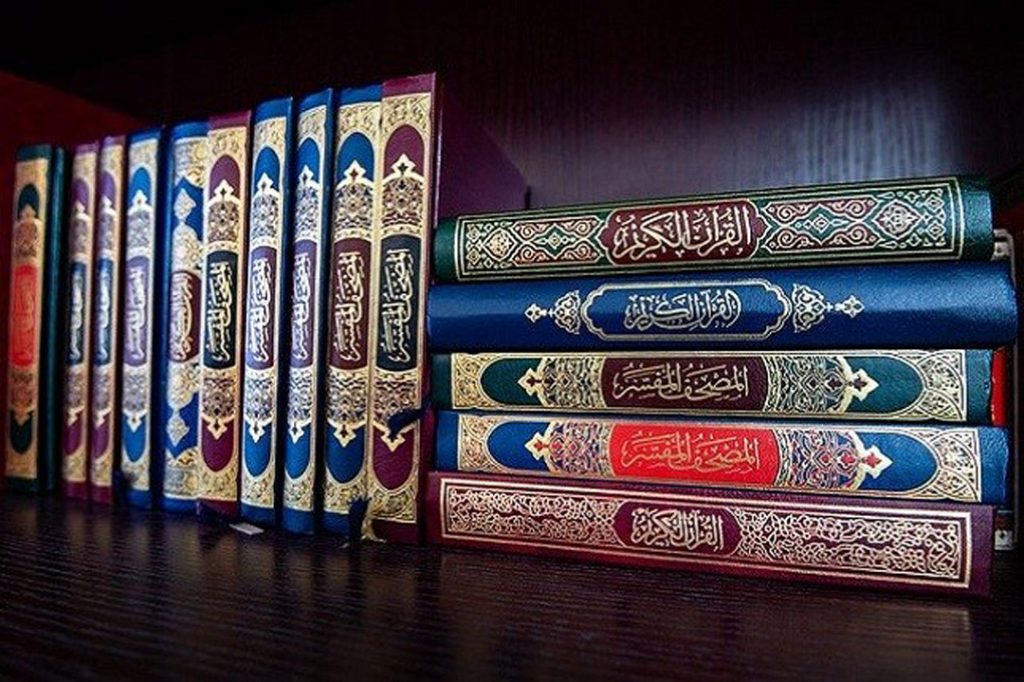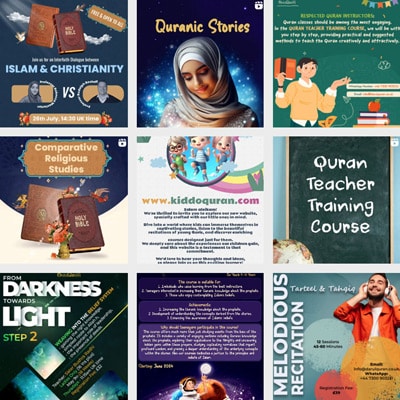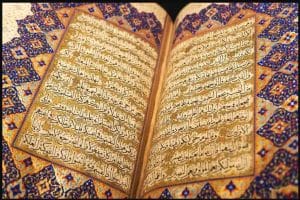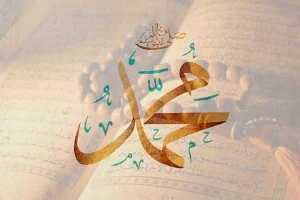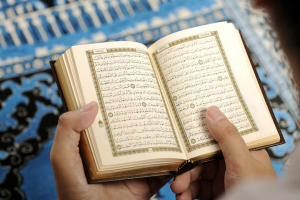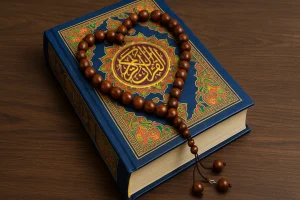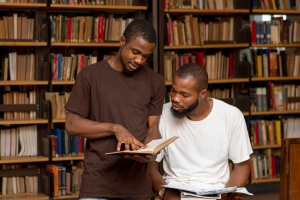The Holy Quran, the literal word of Allah (swt), presents a timeless spiritual inspiration to Muslim scholarship to educe and contextualize its message for every Muslim, if not every human, throughout Islamic history.
Table of Contents
ToggleNot long after the death of the Prophet (pbuh), Islamic scholarship focused on the preservation of Quranic spiritual teachings, its wisdom and its corpus juris.
A particular focus was to understand and contextualize the teachings of the Qur’ān to draw wisdom in resolving various daily challenges of the time.
As the Muslim empire reached a monumental geographical and social scale, it presented its own social and cultural challenges and linguistic diversities.
The Arabic language was not the only widely spoken language of the time. These distinctive civilities pursued a circumstantial understanding of the Quranic message. Furthermore, the expansion of Muslim lands and various governance arrangements with non-Muslim territories encouraged opportunities for Muslims to travel and trade, resulting in the resettlement of many Muslims to foreign lands and cultures.
A dire need for meticulous understanding of the Grand Quran surfaced for guiding the lives of these Muslims living in non-Muslim territories.
Muffassirun (authors of the Quranic interpretations) diligently engaged themselves to effectively present the Quranic narrative through prophetic and traditional narrations to these dynamic societal norms.
That resulted in tafasir bi al-ma’thur (tradition-based interpretations). Moreover, scientific, technological, industrial and sociocultural advancements opened new doors to Tafsir of the Sacred Quran.
Reasoning played a central role in interpreting certain tafasir (plural of Tafsir) to respond to these astute civilizations.
Consequently, reason-based tafasir (tafasir bi al-ra’y) became populous. However, in the present time, all these factors have merged to produce a complex sociocultural framework.
Information technology, scientific advancements, specialized fields of knowledge and aviation developments have turned the world into a globalized village.
This intricate environment has reshaped the methodology of human understanding and Islamic thought. Century old traditions and rationality alone may not be sufficient to respond to the challenges encountered by modernity.
A meaningful Muslim life, once again, requires contextualized understanding of the Quranic message to approach the challenges of this dynamically evolving epoch. On one hand, modern Islamic thought is influencing the manner in which Quranic interpretations are evolving; simultaneously, various modernistic reason and tradition-based Quranic tafasir are profoundly transforming the views and philosophies of present-day Muslims.
This article, after discussing early tafasir norms, will provide historical background and an understanding of Tafsir and its impact, followed by modern trends in Tafsir.
The discussion will continue through exploring the concept of Islamic thought and observations will be made regarding the impact of modern Tafsir on contemporary Islamic thought.
THE ORIGINS OF TAFASIR AND THEIR HISTORICAL CONTEXT
Despite being revealed in Arabic, the Holy Quran’s call to address harmful social practices pushed its original audience to delve deeply into its teachings for understanding.
Regrettably, shortly following the passing of the Prophet (pbuh) and the growth of the Muslim empire, a varied religious, theological, and political environment emerged. Moreover, the ongoing growth of the Arabic language required scholars, whether Muslim or not, to interpret the words and phrases of the Quran within each period of Islamic history.
In order to understand the Grand Quran, it is crucial to have a grasp on its organizational components. Significantly, the Noble Quran is mainly composed of two types of verses: muhkamat and mutashabihat.
Muhkam verses are easily understood and do not need any interpretation or elaboration.
Mutashabihat, on the contrary, need to be explained as they have dual meanings: resembling (indicating similarity to objects, events, or phenomena experienced during the revelation of the verse) and ambiguous (meaning these verses may not be directly related to an object, event, or phenomenon or may contain metaphor).
Additionally, Qadhi examines the different categories of Quranic verses to illustrate the linguistic intricacies of the Sacred Quran that scholars of Tafsir had to grapple with, leading to the development of different types of interpretations.
One example is how Quranic words or expressions can be literal or metaphorical, general or specific, unconditional or qualified, apparent or implicit, and contain either abrogating or abrogated rules.
Understanding different Quranic sciences is essential for thorough interpretation work, along with paying attention to linguistic subtleties.
Essentially, understanding both the Makkan and Madinan periods of the Prophetic (pbuh) life and the revelation of surahs (chapters) in each period, known as Makkan and Madinan surahs, is crucial in any interpretation work. Even though certain verses of the Glorious Quran, whether revealed in Makkah or Madina, may not be specifically tied to a particular event or circumstance, understanding the context, known as asbab ul-nuzul (reasons for revelation), is vital for those verses that are.
Also, many Quranic scholars find it important to take into account the impact of foreign elements when interpreting the stories of past prophets. Only a handful of Quranic sciences are necessary for a genuine interpretation of the Sacred Quran.
Traditionally, Quranic interpretation is categorized into two main schools, as previously noted, Tafsir bi al-math’ur and Tafsir bi al- ra’y.
One of the tasks of the Prophet was to clarify the message of the Quran, which he accomplished through his teachings and actions. Following the Prophet (S), the initial four Rashidun caliphs (632–660 CE) including Abu Bakr, Umar, Uthman, and Ali ibn ali talib, along with several Companions like Abd Allah b. Mas’ud, the son of Ubay. Ka’b, the son of Abd Allah.
Abbas and Zayd, the son of Abbas. Thabit played a major role in interpreting the Holy Quran during the first 150 years after the Prophet’s (S) death, particularly towards the end of the Umayyad dynasty, when scholars began compiling comprehensive tafasir from prophetic narrations and traditions.
Not long after, by the eleventh and twelfth centuries, a number of scholars also developed tafasir entrenched in their personal opinion and rationale reflecting various trends in Muslim thought.
These emerging Islamic thoughts, stemming from multiple orientations, led to sectarian, theological, legal, mystical and philosophical Tafsir of the Qur’ān.
This produced works such as Jami‘ al-bayan ‘an ta’wil ay alQuran (The Commentary on the Noble Quran) by al-Tabari (d. 923 CE) a tradition-based Tafsir; Al-kashshaf ‘an haqa’iq ghawamid al-tanzil (The Unveiler of the Realities of the Sciences of the Revelation) by the Mu‘tazilite grammarian and philologist al-Zamakhshari (d. 1144 CE); Mafatih al-ghayb (The Keys to Unseen) by the Ash‘arite theologian al-Razi (d. 1209 CE), a voluminous and famous reasonbased Tafsir work; Al-jami‘ li-ahkam al-Qur’ān (The Collection of Qur’anic Injunctions) by alQurtubi (d. 1272 CE); Tafsir al-Jalalayn (The Commentary of the Two Jalāls) by al-Mahalli (d. 1459 CE) and his student al-Suyuti (d. 1505 CE); and Tafsir al-Qur’ān al-‘azim (The Ibn Kathir Interpretation) by ibn Kathir (d. 1373 CE). 14 These acclaimed tafasir, along with development in Qur’ānic sciences (ulum al-Qur’ān), became treasured and foundational sources for modern Tafsir work.
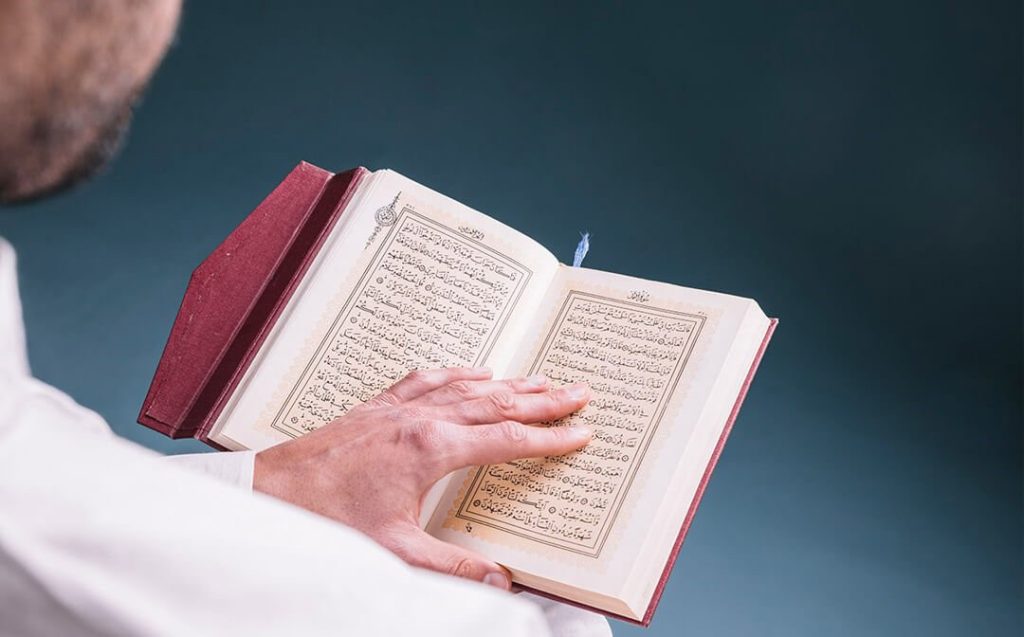
MODERN TRENDS IN TAFSIR
Since the revelation of the Pure Quran 1,400 years ago, the intricate sociocultural and religious environment of modernity once again demands contextualized understanding of the Quranic message.
A modern Tafsir only becomes modern when its explanation (taawil) addresses the social, cultural and political realities of the current era. A number of trends exist in modern scholarship for contextualizing the Quranic message.
The more prominent modernistic methodologies of Quranic exegesis comprise Teetotalism, contextualize, modernist, sociopolitical, scientific, thematic and feminist approaches.
To comprehend how these philosophies are reshaping modern Islamic thought and vice versa, a comprehensive understanding of these trends is desirable, but is beyond the scope of this article.
However, these exegetical trends are briefly examined here.
Textualist Exegesis Exegetical work
The practice of analyzing and explaining Quranic text is known as textualist exegesis. Saeed describes textualist exegesis as Quranic Tafsir that relies on text and tradition, interpreting the Holy Quran strictly from a linguistic viewpoint.
Conceptualist Exegesis
Another contemporary practice in interpreting the Grand Quran is allowing the Holy Quran to convey its own message.
Some argue that the Sacred Quran should be interpreted in the same way as the Arabs of Hijaz did when it was revealed. It is further contended that traditional accounts of revelation are not universally agreed upon and should only be taken into consideration when contextual conditions are favorable in order to clarify this philosophy.
Additionally, scholars like Muhammad Arkoun from Algeria provide further context. In 2010, Egyptian scholar Nasr Hamid Abu Zayd passed away. 2010) are both scholars who were born in Kuwait. In 1963, they refused to copy old ways of thinking in Quran interpretation, just like modernist scholars.
These ideas have influenced modern philosophies in understanding and putting the Quranic message into context.
Modernist Exegesis
Interpreting the Holy Quran solely through the lens of modernity, particularly the Western perspective, is considered to be a form of modernist or reformist commentary. Several Muslim scholars, including Shah Waliullah, share this perspective.
Saeed, in 1762, criticized taqlid and advocated for ijtihad to incorporate modern ideas when interpreting the Sacred Quran. Sir Syed Ahmad Khan (d. 1898) expressed his thoughts on the philosophy of a contemporary scholar.
In 1898, Saeed asserts that the difference between Western and Islamic ways of thinking was substantial, and Muslims who had received a Western education or been influenced by it struggled to understand the religious discussions of the ulama during that period.
The increasing divide jeopardized Islam’s significance as a religion for numerous Muslims.
Moreover, modernists were compelled to explore beyond the grammatical and rhetorical aspects, theological disputes, and jurisprudential methods in the Tafsir tradition due to matters like gender inequality, perceptions of non-Muslims, philosophy, science, and the importance of Islam in contemporary society.
This has led to a Tafsir perspective that connects better with 21st century Muslims. Muhammad Abduh, who died in 1991, was a prominent figure in Islamic reform movements.
Work completed in 1905 was eventually published by his student Muhammad Rashid Rida (d. 1935) like Tafsir al-Manar (Interpretation of Beacon), serves as an illustration of this trend.
Socio-Political Exegesis
Tafasir focused on interpreting the Noble Quran with emphasis on modern social, economic, and political issues fall under the classification of socio-political exegesis. One recognized piece is authored by famous Egyptian intellectual Sayyid Qutb (d. 1966).
His dedication to advocating social, political, and religious reforms is evident in his Tafsir work, Fi zilal al-Quran (In the Shade of the Holy Quran).
Even though Qutb’s method of interpreting the Quran was strongly politically oriented, it gave rise to a fresh type of socio-political analysis and comprehension of the Quranic teachings.
Fazlur Rahman (d. shared similar opinions. In 1988, it was emphasized how crucial it is to comprehend the social and political context in order to grasp the message of the Grand Quran.
Socio-Political Exegesis
Tafasir that relate Quranic interpretation particularly to social, economic and political aspects of modernity can be categorized as socio-political exegesis.
One such acclaimed work is by well-known Egyptian scholar Sayyid Qutb (d. 1966). His life’s mission of advocating social, political and religious reforms can be clearly seen in his Tafsir work, Fi zilal al- Quran (In the Shade of the Qur’ān).
Though Qutb’s approach to Tafsir of the Glorious Quran was highly political, it contributed to a new genre of socio-political interpretation and understanding of the Quranic message.
Similar views were expressed by Fazlur Rahman (d. 1988), reiterating how understanding the social and political environment plays a foundational role in understanding the Quranic message.
Though other comparable work in scientific exegesis by French surgeon Maurice Bucaille36 has raised much debate regarding the scientific inimitability of the Grand Quran, this revived modern trend in Quanic Tafsir will most likely further expand as the Western influence on Muslim societies continues.
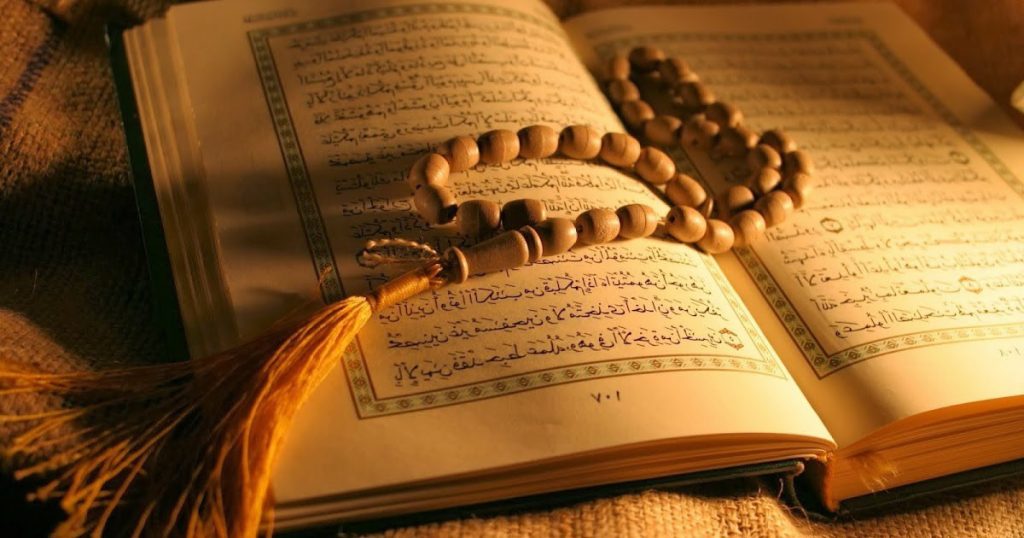
Thematic Exegesis
This modern genre of Tafsir advocates Quranic exegesis in the forms of various themes and topics that are central to the Holy Quran.
Egyptian scholar Amin al-Khuli (d. 1967), well-known for his tajdid (renaissance) methodology in Quranic interpretation, though he did not write Tafsir, is a strong proponent of exegetic work based on thematic interpretation (Tafsir mawdu’i) of the Quranic message.
Iranian Ayatullah Murtaza Mutahhari (d. 1979), Egyptian writer Abbas Mahmud al-Aqqad (d. 1964) and Pakistani scholar Fazlur Rahman have written extensively on the various themes in the Grand Quran, such as society, history, women’s rights and fundamental liberties.
Though this trend in explaining the Noble Quran can be traced back to the Companions, its application in modern Tafsir work is unrivalled.
Feminist Exegesis
Since the second half of the last century, feminist exegetes have emerged to challenge patriarchal interpretations of the Sacred Quran.
Female scholars, such as Moroccan writer and sociologist Fatima Mernissi (d. 2015), American Muslim scholar Amina Wadud (b. 1952) and Pakistani-American writer and academic Asma Barlas (b. 1950), have produced major works in feminist exegesis using the conventional principles of Tafsir, such as Tafsir of the Quranic verses in light of other Quranic verses and the sunna of the Prophet (pbuh).
One of the earliest and perhaps most challenging works, arguing against segregation of the sexes and notions of women’s inferiority to men, is by Lebanese scholar Nazira Zain al-Din (d. 1976), who published Al-sufur wa-l-hijab (Unveiling and Veiling) in Beirut in 1928.43 These modern female scholars have not only pointed out the patriarchal nature of traditional exegetic work, but have contributed feminine perspectives to Tafsir tradition.
When examined superficially, these modern Tafsir trends appear to be diverse and, at times, opposing in nature.
However, on analysis, a significant synergy of ideologies and philosophies is strongly palpable.
From teetotalism to contextualize, modernism to feminism, scientism to socio-political and thematic interpretations, the underpinning of these modern Tafsir trends is how to appropriately respond to prevailing diverse geopolitical, sociocultural and technological issues in this advancing world.
It is the result of such contributions to modern thought by contemporary scholarship in these various Tafsir genres that Muslims are able to navigate their responsibilities under the luminous guidance of the Holy Quran.
ROLE OF MODERN TAFASIR IN CONTEMPORARY ISLAMIC THOUGHT
Since the advent of Islam, Muslims have conformed their lives to the commands of Allah (swt), primarily through understanding the message of the Heavenly Quran and traditions of the Prophet (pbuh), and the present time is no exception.
However, modern interpretations of the Grand Quran, keeping Tafsir tradition and historical context in view, must address the needs of the contemporary Muslims.
The Noble Quran’s focus is to create a viable society that is dynamic and able to adapt itself to the requirements of the time.
Modern Quran scholarship needs to rise above traditional orthodoxy, surpassing essential textualistic interpretations of Quran, to meet the challenges of modernity head on. Recognizably, many efforts have been made to reshape Islamic thought through contemporary Quranic interpretive and exegetic works.
One such example is Said Nursi (d. 1960), a Muslim thinker and Turkish scholar, whose acclaimed work in contemporary Islamic thought and spirituality is published in the form of Risale-i Nur.
Though Nursi emphasises Quranic interpretation by the Sacred Quran (contextualize), the Prophet (pbuh) and Companions, he was not a proponent of reading straight from the text and was against narrow literalism.
Though the socio-political and feminist Quranic Tafsir genre is a relatively a new phenomenon, at times traversing the normative interpretive Quranic boundaries, these tafasir trends have significantly contributed to reshaping Muslim worldview.
Traditional and cardinally patriarch social, political and religious values require modernistic transformational reforms.
The works of Sayyid Qutb, Fatima Mernissi, Amina Wadud and Asma Barlas have arguably provided this much needed socio-political restructuring of contemporary Islamic thought. By contrast, scientific exegesis already carries a profound societal impact on modern Islamic thought.
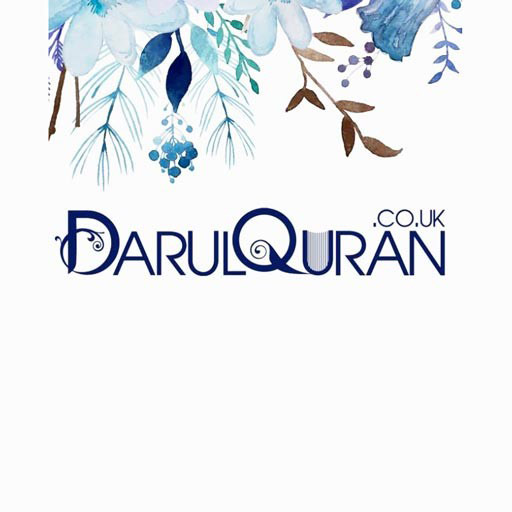
In conclusion for more than 1,400 years, Muslim lives have been influenced by Quranic teachings and wisdom.
Muslim scholars over the years have interpreted the message of the Holy Quran in order to help Muslims address the difficulties of their current circumstances.
In today’s modern society, with its distinct cultural, political, religious, scientific, and technological advancements, the necessity for Quranic guidance is more critical than before.
The historical exegesis rooted in tradition and reasoning plays a crucial part in shaping contemporary developments in Tafsir, but the rapid advancements in contemporary Islamic ideology demand a thorough and swift Quranic interpretation.
Despite the intricate Arabic vocabulary and structures found in the Grand Quran, along with verses that can be interpreted in both obvious and unclear ways, these features are appropriate for a timeless Divine message.
Understanding the historical context of the Pure Quran’s revelation is crucial for comprehension.
Current developments in interpreting the Heavenly Quran, ranging from focusing on the literal meaning to considering the historical context, embracing modern ideas, incorporating scientific knowledge, exploring social and political aspects, and discussing feminist perspectives or simply explaining the Holy Quran’s themes, reflect the changing society, evolving culture and political circumstances of today, all rooted in different interpretations of Islamic principles.
While modern muffassirun continue to uphold traditionalism and scripturalism of the past 14 centuries, their Tafsir work must also evolve to reflect the shifting values of socio-religious tolerance, scientific and technological advancements, and rationalistic pluralism.
As modern Islamic thought continues to develop alongside current worldviews, it is crucial for current Muslim scholars to interpret the Glorious Quran in a way that builds upon traditional Quranic exegesis from centuries past.
Despite facing strong opposition, it is this intellectual and modern Islamic dialogue that will provide modern Muslims with the tools needed to adopt and spread contemporary Islam.

